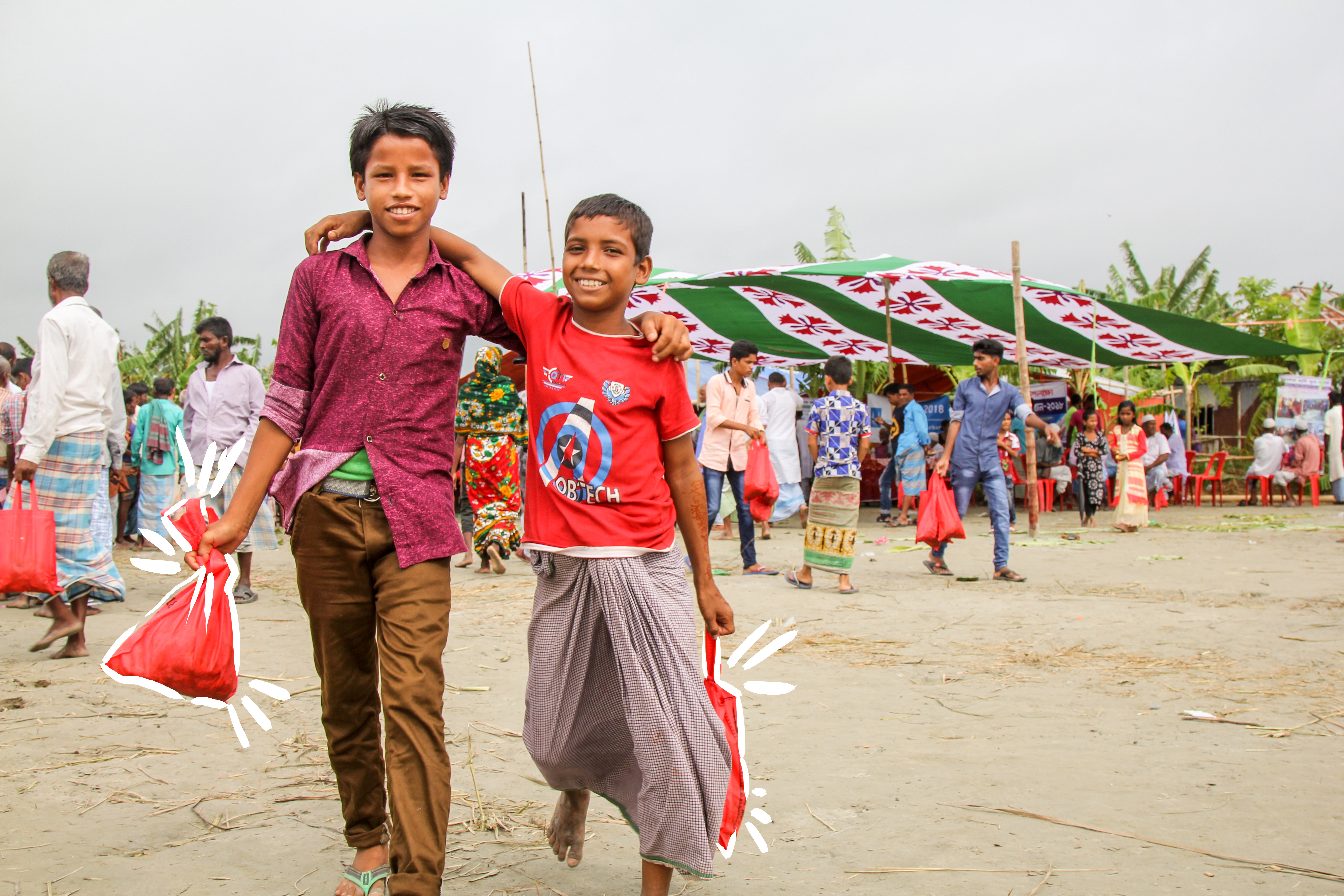Arab Idol Star Mohammad Assaf Talks Hope And Help in Gaza
“Let me explain to you that, living the life of a Gazan is a life of simplicity,” started the young Arab Idol star and UNRWA Goodwill Ambassador Mohammad Assaf, “Where the biggest worry is to find security for your children throughout the day.”
That life doesn’t sound so simple in conflicted circumstances, does it? Just the thought of having to worry about finding security for your children day-to-day would complicate any one of our lives tremendously.
AS A BOY LIVING IN GAZA, HE REMEMBERS GETTING HELP FROM ISLAMIC RELIEF USA AND UNRWA.
That assistance helped relieve some of the struggles that he and his neighbors faced growing up. Although the care and kindness from outsiders helped give him and his peers a boost, becoming an international star was a far away dream for Assaf.
Assaf was born in 1989 to Palestinian parents in Misrata, Libya, but when he was just four years old, they moved back to Gaza. He grew up in Khan Younis, a Palestinian refugee camp with six siblings and attended a UNRWA elementary school.
His love of music started there. At just five, Assaf “had a voice of someone who was much, much older,” said his mother Intisar, a mathematics teacher.
Although he earned good enough marks to attend Gaza City’s Palestine University, he never received formal music training. Assaf cultivated his voice by performing at wedding and booking other local private events.
“OUR LIVES WERE VERY SIMPLE,” HE SAID. “PEOPLE HAVE A STRONG RELATIONSHIP AND SENSE OF UNITY. BECAUSE THERE’S NOT MUCH WE CAN DO, YOU KNOW?”
He explained that growing up, and even now, young adults are unemployed en mass. There aren’t any jobs. Knowing this, teens go to school most of the day, but then come home only to cause trouble in the streets. The biggest dreams that youth had around him were to possibly get married.
There’s little inspiration to do anything productive when opportunities are so few and far in between. That’s different for Assaf than not having hope. Gazans have a lot of hope.
“WE ALWAYS HAD HOPE FOR THE FUTURE,” HE REFLECTED. “MOST THINK PEOPLE WHO LIVE IN CRISIS DON’T HAVE HOPE. IT’S THE OPPOSITE ACTUALLY … THE HUMAN BEING HAS TO DEPEND ON HOPE.”
It’s that hope that allows for many to survive, and some to break-through barriers of poverty and into the chance for a better life, including Assaf.
In 2000, he entered the public eye by landing an appearance on a popular local television program. But his career would officially launch when he’d enter the music competition Arab Idol.
To audition for the show required a lot of faith and hope. He traveled two days by car from Gaza to Egypt to make the auditions, having been stuck at the border for some time. He had to convince border authorities to allow him to leave Gaza, but he couldn’t convince them soon enough.
Assaf got to the hotel where the auditions were taking place, but the doors had already closed to contestants. So he jumped the wall. And even then, he found that all the audition numbers had been given out.
Defeated, Assaf sat in the hallway to recover from his ordeal. He started singing to the other contestants and passers-by.
Another Palestinian, Ramadan Abu Nahel heard Assaf’s voice and was so moved by it, he gave Assaf his contestant number. “He told me: I know I won’t reach the finals,” Assaf said, “But you will.”
Now, not only is he thankful for all of those who helped and believed in him along the way, but he works hard to give back to organizations that sustained life for him and his family.
Assaf’s message to future generations of youth can be summed up simply in three words: Don’t give up.
“If any person wants to reach a goal, they’re going to have to work hard for it,” Assaf advises. “Something I want to say to the youth of my generation is don’t let any chapter in your life, even if it’s a sad one, have a negative affect on your life.”



